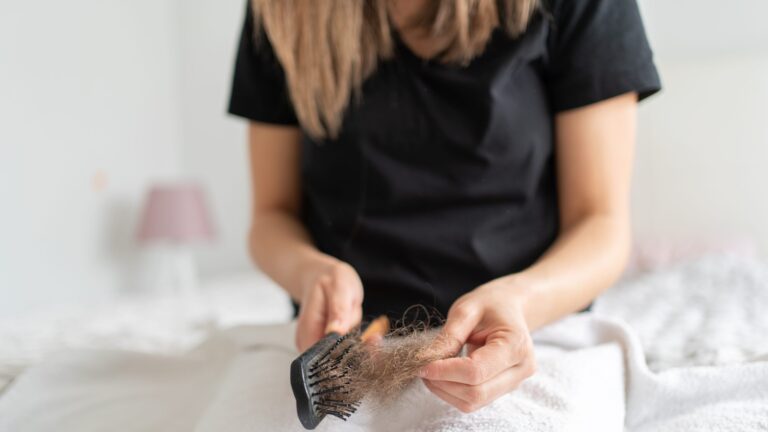According to NYU Langone Health, more than 80% of men and nearly 50% of women experience significant hair loss at some point in their lives. Enter the vitamin and supplement industry that promotes hair growth vitamins as the solution to your problems.
Unfortunately, health experts say it’s not always as easy to regrow hair as it is to pop a pill.
“Hair loss is not necessarily caused by a vitamin deficiency, and taking vitamins does not guarantee hair growth,” Carolyn Thomason, RD, a Washington, D.C.-based nutritionist, told USA TODAY.
When can vitamins help hair growth? Health experts explain.
Which vitamin deficiencies can cause hair loss?
As Thomason pointed out, hair loss can occur for a variety of reasons. It doesn’t necessarily mean you’re lacking in vitamins.
According to NYU Langone, about 95% of hair loss cases in men are caused by androgenetic alopecia (male or female pattern baldness). For women, the probability drops to about 40%. Other common causes include genetics, hormonal imbalances, stress, medications, and medical conditions, Thomason said.
If vitamin deficiency is the cause of hair loss, it’s likely due to low biotin and/or vitamin D levels, board-certified dermatologist Hadley King, MD, told USA TODAY.
Is coconut oil good for hair? The answer may surprise you.
What vitamins are good for hair growth?
Again, if the hair loss was not caused by a vitamin deficiency in the first place, taking vitamins may not help hair growth.
Thomason says if you’re experiencing hair loss, the first step is to talk to your health care provider. Blood tests can be done to determine if there is a contributing deficiency. If so, taking vitamins may actually be the right thing to do.
Dr. King highlights biotin, fat-soluble vitamins A, D, and E and vitamin C as proven to help prevent hair loss. However, do not start taking vitamins on your own without consulting your doctor. Other health complications may occur if the vitamin levels rise above safe limits or if they adversely affect another health condition or medication.
According to Harvard Health, consuming too much vitamin A and selenium can actually cause more hair loss. Also, too much biotin in most skin, hair, and nail supplements can negatively affect some thyroid and hormone lab tests.
How to make hair thicker: What is thin hair and how to make it thicker?
If vitamin deficiencies aren’t the cause of your hair loss, Thomasson recommends “eating well, meeting your protein needs, getting consistent sleep, and managing your stress levels” to prevent hair loss and support growth. is recommended.

